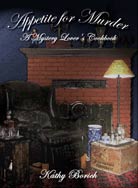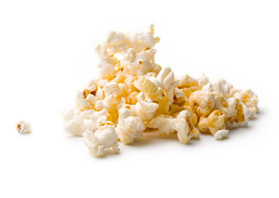Before the Fall: Baked Sauerkraut with Apples Recipe
Year Released: 2004
Directed by: Dennis Gansel
Starring: Max Riemelt, Tom Schilling, Michael Schenk, Justus Von Dohnanyi, Devid Striesow, Joachim Bibmeier
(Not Rated, 110 min.)

"Man is a rope stretched between the animal and the Superman – a rope over an abyss." Friedrich Wilhelm Nietzsche
Although its is set in Nazi Germany in the early 1940s, Before the Fall is less about the evils of fascism than the struggle between idealism and ambition, the clash between fathers’ expectations and sons' dreams, and the repercussions of a flawed ideology upon the individuals who espouse it.
This very personal view of Nazi Germany is not the dark negative so well brought to celluloid in such classics as The Pianist, Schindler’s List and A Beautiful Life, but rather its counterpart, the bright photo of youthful exuberance and idealistic ambition. There is no need to hit us over the head with the horrors of the Holocaust; the audience is fully aware of these.
So instead we get mere glimpses of the fatal flaws in Hitler’s vision, subtle reminders of its brutal practices. And what better place to showcase the ironies of its message than Napola, the elite school that prepares its youth for their place in Hitler's envisioned "Utopia." One such subtle glimpse is at the palatial estate of a school chum. As his friend marvels at the exquisite interior, the chum explains that everything was already there when his family moved in. One has to think a bit before coming to the conclusion that it was probably confiscated from those of “inferior genetics.”
In keeping with this understated context of atrocities, we get classroom lectures on the moral supremacy of Darwin’s survival of the fittest doctrine instead of its ultimate reprehensible acting out in the death camps of Auschwitz. Anti-Semitism is enshrined in the dusty pages of academia as selected quotes of Martin Luther are used to substantiate it.
Another aspect that makes Before the Fall so effective is that it never stoops to vilify its characters. In fact, the lowest moment of the character closest to being an out and out villain is less his role as uncompromising governor of the province than his cruel and callous treatment of his sensitive son. The school’s trainer relishes in the physical and emotional torments of his recruits, such as a nice morning swim in the lake, a pastime made somewhat more difficult due to the thick layer of ice on its surface. His humiliation of Siegfried, whose transgression of bedwetting is viewed as a character flaw that must be eradicated as surely as a rat in the kitchen, is cruel and personal, but we wonder is this type of thing might not go on in many such institutions that specialize in turning boys into warriors. Is the trainer so very different, after all, from our own drill sergeants?
The head master welcomes the young boys and men at beginning of term with a speech much like the ones given at New England prep schools or even Dumbledore’s opening to the young acolytes of Hogwarts Academy. Here at Napola, the headmaster tells them, all will be treated equally, whether they are sons of laborers or the progeny of men of wealth and position. The fighting coach is equally at home in his classroom analyzing ancient German verse and its idealized heroes as he is in the boxing ring. It is he who has recruited Friedrich Weimer to Napola after witnessing the boy’s talent as a boxer, and he coaches him with the same mixture of tough love and mothering solicitude as the wizened old timers who stood behind everyone form Rocky to Cinderella Man.
The fact that sometimes all the talk about instilling honor in these young men is just that -- talk – in reinforced when Friedrich admits to his recruiter that his father has not agreed to sign his application and he has forged it himself. The bromide about how such an action is against the school’s policy to train men of honesty and integrity rings a bit hollow when Friedrich is nonetheless welcomed immediately into its ranks. The fact that the boxing cup has been wrested from Naploa by its rival in recent years may help to explain their willingness to accept a few irregularities.
There are, however, no irregularities accepted in the entrance tests, which have almost nothing do with any academic aptitude. The closest they come to assessing his mental prowess is with the calibers they use the measure Friedrich’s cranium. In fact, Freidrich does not even come close to wielding a pen or pencil in his exam. He does climb ropes and perform other physical tests, but the most important cold and clinical examination puts a chill in our spines.
No, it’s not a dreaded series of vaccinations, but a very measured calculation of his features, with charts to match eye color and an assortment of hair swatches that would put a hair colorist to shame. Friedrich is the prototypic “Blond Beast” the other Friedrich -- Nietzsche, that is, expounded upon. But our perfect Aryan defies stereotyping. Yes, he has just the right combination of youthful zeal and striving ambition, but he is no brute. When his friend Albrecht complains that his parents only pretend to read his prized essays -- he puts strands of hairs in every page and is saddened to find them still there when his parents return the papers – Friedrich takes the bundle back to his room and reads every one. He is proud to be at Napola, to be one of the “elites,” but his pride is more in line with that of a Harvard undergrad than a scion of Hitler’s Youth.
This is this insider’s view of Germany before the fall, where a flawed mentality gives the sorcerer’s apprentice not the anticipated fruits of a little well-applied magic, but instead a relentless rot that permeates the whole harvest. It is perhaps more tragic and compelling than any ghastly tales by its other victims.
—Kathy Borich
Film-Loving Foodie
From Oliver Twist to the Harry Potter sagas, each dining hall has the same endless rows of long tables filled to the brim with hungry youth. The amount and quality of what fills their plates probably says as much about their respective institutions than a visit to the classrooms. Oliver’s plaintive, ”Please, Sir, I want some more,” was an eloquent metaphorical description of too many institutions in Dickens’ England. Hogwarts Academy, by contrast, is piled high with delicacies that sparkle and may perform as much magic as the young wizards who consume the hearty Yorkshire puddings, roast beefs, and splendid custard tarts.
The young men at Napola also eat well. And in an unlikely deviation from their strict military discipline, they are served by young frauleines who most certainly interrupt any ruminations on the Third Reich. What they bring to the table along with their titillating beauty is guaranteed to nourish the bodies and perhaps the beating hearts of the young men of Napola.
Let us set aside the hearty schnitzel and the mysterious glittering purple beverage and concentrate on the lovely side of red kraut and apples. Sweet and sour, this dish awakens the senses like the crimson blush of a young maiden in the cool autumn evening.
Enjoy.
Baked Sauerkraut with Apples
Ingredients
- 1 qt red sauerkraut
- 1/4 c sliced onion
- 2 Tbsp. butter or bacon drippings
- 2 or 3 medium-size apples
- 1 1/2 c white wine
- 1/2 c beef stock or bouillon
- 1 tsp. brown sugar
- 1 tsp. celery seeds
Directions
Drain kraut slightly. Cook onion in butter or drippings until transparent. Add sauerkraut and stir; cook slowly. Wash, peel, and core apples; dice fruit and add to sauerkraut. Add wine and enough stock or bouillon to cover. Cook slowly, uncovered, for 30 minutes. Add sugar and celery seeds; cover and finish cooking in moderate 325° oven 30 minutes longer.
Makes 4 to 6 servings.
Recipe Source: Recipes by Cindy



 Classic & Crime
Classic & Crime